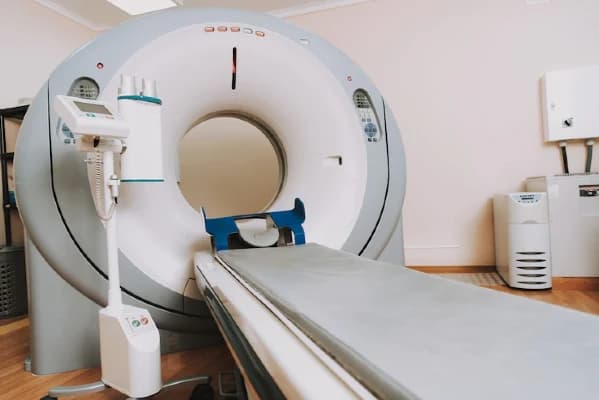Heart Tests: Medical Tests Done to Detect Heart Diseases and Problems

Medically Reviewed By
Dr. Ragiinii Sharma
Written By Srujana Mohanty
on Mar 13, 2022
Last Edit Made By Srujana Mohanty
on Mar 18, 2024

Heart tests are diagnostic tests done to detect any coronary heart diseases, peripheral arterial disease, cerebrovascular disease, rheumatic heart disease, deep vein thrombosis, congenital heart disease, pulmonary embolism, and other disorders related to the heart and blood vessels. In this article read about the various tests that are used to diagnose and monitor heart health.

Heart Tests
According to the World Health Organisation (WHO), in 2016, 17.9 million people died from cardiovascular diseases across the world. Approximately, 63% of deaths in India in the year 2016 were due to non-communicable diseases, out of which 27% were due to cardiovascular diseases. The various heart tests that are used to monitor and diagnose heart-related disorders include a number of blood tests, invasive, and non-invasive tests.
Blood tests
In case of damage to the heart muscles, certain substances are released into your blood, the level of which can help doctors diagnose heart diseases and evaluate the level of damage as well. The blood tests recommended for heart patients are:
-
Lipid profile
The lipid profile test includes calculation of various vital parameters like total cholesterol levels, high-density lipoprotein (HDL or good cholesterol), low-density lipoprotein (LDL or bad cholesterol), and triglycerides.
-
Lipoprotein (a) (Lp(a))
Lipoprotein (a) is the lipid conjugated with a protein. The levels of lipoprotein are determined by your genes and are not affected by any external factors.
-
C-reactive protein (CRP)
The C-reactive protein is produced in your body as a response to any kind of infection or injury. The blood test reports and your risk factors for a probable heart disease help in determining the health of your heart.
-
Homocysteine
Homocysteine is a vital parameter involved in the production of proteins that maintain your body tissues. A high level of homocysteine in your body increases your risk of heart disease and stroke. This test is recommended to people who are at a high risk of heart disease or those who have a family history of heart disease.
-
Troponin blood test
The troponin levels in the blood are an important parameter to accurately detect for any damages in the heart muscle. It also helps in suspecting the chances of any future heart attacks.
Non-invasive tests
Electrocardiogram (ECG)
In ECG, the electrical activity of your heart is recorded. This electrical activity helps in determining the functioning of different parts of the heart. The test is also used to identify any problems related to the heart rate and rhythm of your heart,
Echocardiogram
Echo test is a non-invasive test that gives the picture of your heart health through an ultrasound. The test is used to detect any improper functioning related to the valves and chambers of your heart. It also checks how strongly the blood is being pumped from your heart.
Stress test
Stress tests are a special type of heart test that enables doctors to see how well your heart is functioning while you are physically active. The various stress tests that can be done include:
- Exercise stress test: This is a type of test wherein an electrocardiogram (ECG) test is done while you are exercising. Heart rhythm, heart rate and blood pressure are the vital parameters checked in this test. This test is also known as the treadmill test as generally, your doctor will conduct this test while you are running on a treadmill.
- Stress echo test: In this test, a radioactive substance, known as a tracer, is injected into your bloodstream and then an ultrasound is done to diagnose the presence of any kind of differences between the heart chambers and valves and to analyze how strongly your heart beats during exercise or under the influence of medicine.
- Nuclear cardiac stress test: This test is a combination of the above two stress tests. In this test, a tracer is injected into your blood which facilitates the release of energy from your heart. The images of the released energy are taken from outside the body with the help of special cameras. This test is done to evaluate the amount of blood that flows to your heart muscles and check the functioning of the heart while you are resting or doing some physical activity.
Carotid Ultrasound
It is an ultrasound that is generally done to evaluate the risk of stroke. In this test a transducer is gently pressed against the sides of your neck to obtain the images of your arteries on a computer screen. The flow of blood through the carotid arteries are also monitored to strike out the possibility of stenosis.
MRI
It is a diagnostic test wherein strong magnets and radio waves are used for the formation of detailed images of your heart. Both still, as well as moving pictures, can be obtained through MRI. A special dye can sometimes be used during the procedure that makes the coronary arteries and other parts of the heart easily distinguishable.
CT Scan
The cardiac computed tomography (Cardiac CT) is a heart test that uses a special X-ray machine to obtain detailed 3D images of your heart when the X-ray machine is moved around your body.
Invasive tests
Coronary angiography
The coronary angiogram is the best available method to examine diseases related to the coronary arteries. It is an X-ray test that examines the coronary arteries that supply the blood to your heart muscles. A long flexible tube (catheter) is inserted into the blood vessel of your groin or arm and the tip of the catheter reaches your coronary arteries. A special dye is injected into your coronary arteries to obtain an X-ray image known as angiogram. The test is generally used for the identification of any blockage or narrowing present in the arteries. It also helps in diagnosing diseases related to the heart valve and muscles.
Electrophysiology study (EP)
This is an invasive diagnostic test that records the electrical activity of your heart. The test helps in determining the underlying cause for your rhythmic disturbance and plan a treatment accordingly. There are various stages of an EP study that include
- Assessing the electrical functions by recording the electrical signals of your heart
- Bringing certain abnormal rhythms to observe them under controlled conditions.
- An ablation procedure may also be sometimes required for the destruction of abnormal tissues.
Takeaway
The heart is a vital body organ and its proper functioning is critical for a healthy and long life. Now that you know various heart tests that can diagnose your health efficiently, you must surely consider them as a priority when your doctor recommends it to you.
Frequently Asked Questions (FAQs)
-
Which is the best test to detect heart blockage?
The best test to detect heart blockage is a coronary angiogram.
-
What types of heart diseases persist in humans?
The 4 types of heart diseases common in humans include arrhythmia, coronary artery disease, heart failure and heart valve disease.
-
Can blockages in arteries be detected by ECG?
No, ECG cannot detect blockages in arteries.



